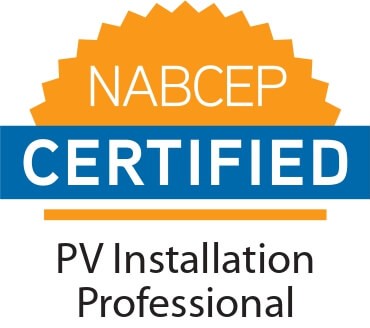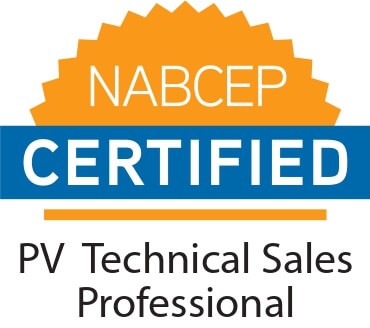
Solar Battery Backup Installations Provide Blackout Protection Without a Fossil-Fuel-Powered Generator
It used to be that winter was the only time people in West Virginia, Maryland, Pennsylvania and Virginia had to worry about power outages. That’s when the accumulated weight of snow and ice on the overhead power lines would break them.
But now the North American Electric Reliability Corporation (NERC) is warning of the growing possibility of blackouts across vast areas of the country this summer.
Battery Backup Solar Helps You Get Ready for Year-Round Power Outages
One of the causes, NERC says, is a one-year, 196% increase in the price of natural gas, which fuels many of the nation’s power plants.
Another is a surge of hotter than expected summer heat waves, which add a double whammy: First, hotter temperatures make people turn up the air conditioning, draining more power from the electric grid. And second, they cause droughts, which lower the water supply available for hydroelectric power and for cooling gas-, coal-, and nuclear-fueled plants.
Combined, that can lead to what NERC’s annual summer assessment calls a “high risk of energy emergencies.” Over close to 30 years, “This is probably one of the grimmest pictures we’ve painted in a while,” said John Moura, NERC’s director of reliability assessment and performance.
Unlike winter outages, summer blackouts also bring the risk of food spoilage and heat stroke or exhaustion.
How to Cope with Blackouts
Here are 10 things the Department of Energy and CNET suggest to help you and your family get through one:
- Have plenty of flashlights and batteries on hand. The DOE suggests a flashlight in every room. Plus plenty of spare batteries; even the longest lasting don’t hold a charge forever.
- Don’t use your phone flashlight. If the blackout goes on and on, you’ll need your phone charged to communicate for help.
- Keep candles and matches on hand, too. Unlike flashlights, candles may burn down, but they never run down. Once lit, don’t leave candles unattended or light them anywhere near a possible gas leak.
- You can safely light your house with solar lanterns or LED lanterns with long-lasting batteries. Check on how long those hold a charge, or else you’ll have to wait until the morning after the blackout to charge and use them.
- If you take medicines that need to stay cold, get ice packs and a cooler to put them in. During the blackout, open them only when needed to get your meds. Each time you open it – or your fridge or freezer – cold air gets out and warm air gets in.
- If your water comes from a well, keep bottled water on hand. The DOE suggests one gallon a day per person.
- Canned foods are nonperishable and don’t need cooking. Keep a few days’ supply on hand. And if you don’t need them during a blackout, you can always eat them later.
- Stock or buy your own first aid kit – and know how and when to use it.
- If your family’s not together at home when a blackout hits, have plans for how you’ll all communicate and where you’ll all meet if you home’s not an option and if communications went down when the power did.
Make sure you know places you can head to if the summer heat or winter cold becomes literally unbearable.
How to Avoid Outages Completely with Battery Backup Solar
Of course, the best way to get through a blackout is to have your own emergency backup power – from either a fossil-fuel-powered backup generator or a solar battery backup.
Being solar installers, we naturally favor the latter – but for good, objective reasons. Backup generators run on fuel that needs replenishing during longer blackouts. And if improperly installed, or installed too close to a building people use, they can pose a serious risk of carbon monoxide poisoning.
Unlike backup generators, solar battery backup systems work for you day in and day out, cutting your electric bills by as much as half, earning you money from selling excess electricity back to the power company, and substantially increasing your property value.
At the same time, they store up electric power for a summer or winter blackout. When the power grid goes down, the batteries kick in, instantly switching over to the electricity stored in your batteries to power your lights, your well pump, your refrigerator and freezer, and other home energy needs without even so much as a flicker. There’s no flammable fuel to worry about, and no threat whatsoever of carbon monoxide poisoning. Better yet, when the sun rises in the morning, they automatically “refuel” themselves.
If you already have a solar installation, you can add battery storage to it. You’ll qualify for a 30% federal income tax credit, which you can also take as a tax refund. Also, you can take 30% on batteries as well, provided you either install them with your solar panels or have them retrofitted up to a year later. In Maryland, you’ll also get a state income tax credit just for adding battery backup.
Once you decide on a battery storage system, though, make sure that:
- You use batteries with lithium-iron-phosphate chemistry, which have a much better safety record than the lithium-manganese-cobalt oxide kind.
- You choose batteries that can hold a charge for several days instead of just overnight.
- The batteries aren’t too large for the other components. Not only will you be wasting money, but because the system won’t be powerful enough to fully charge those batteries, their lifespan will be curtailed.
- The solar installers you choose really know what they’re doing. Solar with battery backup is much more complicated than the typical grid-tied system. It requires some careful planning, design, and, most important, customer participation in determining the right size and configuration for your property. We’ll guide you through that process. It’s what we do.
To get truly dependable and long-lasting service from a solar battery storage system, though, there are two important things to look out for – quality of components and quality of installation.
Milestone has installed more battery backup systems than any other West Virginia solar installer. Based on feedback from distributors and manufacturers, we believe we’ve installed more solar/battery backup systems than anyone within 200 miles of our office (including parts of Pennsylvania, Maryland, and Virginia). It’s our specialty and our passion, and we consider a grid-tied solar system with battery backup to be the ultimate solar system – much better than a home with a large fossil fuel generator.
Components make as big a difference as installation. While some batteries can store electricity only overnight, the ones we install are good for more than three days’ worth, even if those days are cloudy. When it comes to solar panels, we’re the only West Virginia solar installer chosen to be an Authorized Panasonic Installer. Panasonic and REC modules are arguably the world’s highest-performance, highest-efficiency solar panels, so you get more energy, more dependably. And because we’re Authorized Installers for both, you also get more inclusive warranty protection and up to five additional years of coverage.
If this appeals to you, we invite you to speak with some of our dozens of satisfied customers and let us design and install a battery backup storage system for you.





